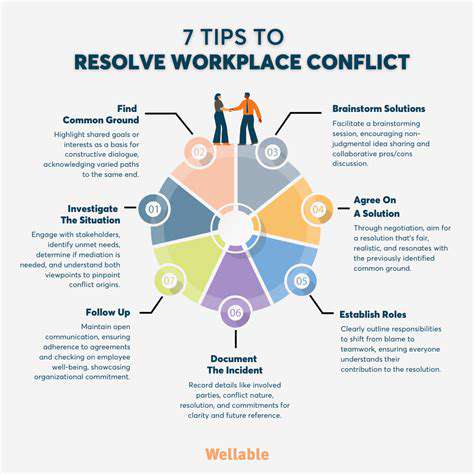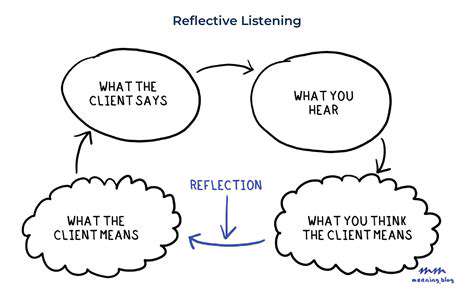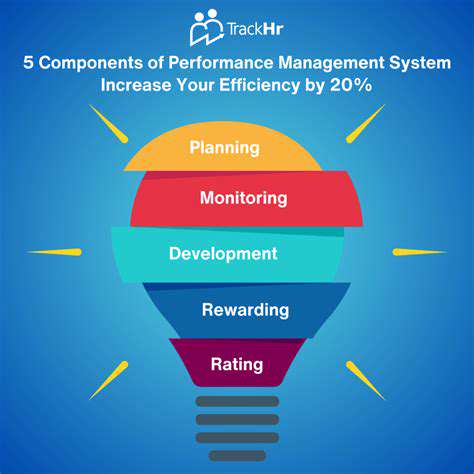Helping Kids Adapt to New Situations: Embracing Change
Identifying and Addressing Potential Challenges
Understanding the Nature of Change
Children, like adults, experience stress and anxiety when faced with new situations. Understanding that this is a normal human response is crucial for helping them adapt. Recognizing the specific anxieties a child might be experiencing, whether it's fear of the unknown, social discomfort, or concerns about their routine, is the first step to providing effective support. This includes being aware of the child's personality and typical coping mechanisms.
Change, whether it's a new school, a new home, or a new family member, can disrupt established routines and create uncertainty. Helping kids understand that change is a part of life, and that even though it may feel uncomfortable at first, it can also lead to positive outcomes, is an essential part of the process.
Navigating the Emotional Landscape
Children may express their anxieties in various ways, from acting out to withdrawing. Recognizing these behaviors as signals of distress is paramount. Creating a safe and supportive environment where children feel comfortable expressing their emotions without judgment is vital. This might involve providing opportunities for open communication, active listening, and validating their feelings.
Encourage children to identify and name their emotions. Helping them understand that it's okay to feel sad, scared, or confused is crucial. Providing tools and strategies for managing these emotions, such as deep breathing exercises or mindfulness techniques, can empower them to cope with challenges more effectively.
Addressing Specific Challenges
Different situations demand different approaches. Moving to a new city, starting a new school, or dealing with a family member's illness all present unique challenges. For instance, when moving, focus on familiarizing children with the new surroundings, highlighting positive aspects of the new environment, and fostering a sense of belonging. For a new school, involve the child in the transition process, connecting them with peers and teachers, and supporting the development of friendships.
Dealing with a family illness requires a sensitive approach, ensuring the child feels involved and informed without overwhelming them with detail. Open communication and reassurance are key. Creating opportunities for the child to express their concerns and feelings in a supportive environment is paramount during these times.
Building Resilience and Coping Mechanisms
Promoting resilience, the ability to bounce back from adversity, is essential for helping children adapt to new situations. Encouraging a growth mindset, where children view challenges as opportunities for learning and growth, is a powerful strategy. This approach empowers children to view setbacks as temporary and overcome obstacles with determination.
Developing coping mechanisms, like problem-solving skills, healthy habits, and positive self-talk, can equip children with the tools they need to navigate future challenges. These skills will not only be helpful during transitions but also throughout their lives.
Building Resilience Through Positive Coping Mechanisms
Identifying and Understanding Stressors
Children, like adults, experience stress from various sources. Recognizing these stressors is the first step in building resilience. These can range from academic pressures and social anxieties to family transitions, such as moving to a new home or a parent changing jobs. Understanding the specific triggers that create stress in a child helps to tailor coping mechanisms that address the root cause of the issue, rather than just the symptom. This involves open communication and active listening to understand their perspective and concerns.
It's crucial to differentiate between typical developmental challenges and more significant stressors. While some level of stress is normal and can even be beneficial in fostering growth, chronic or overwhelming stress can have detrimental effects on a child's mental and emotional well-being. Parents and educators should be attentive to the signs of excessive stress, such as changes in behavior, sleep disturbances, or loss of appetite, and seek professional guidance when needed.
Developing Healthy Coping Strategies
Effective coping mechanisms are crucial for navigating stressful situations. Encouraging children to engage in activities they enjoy, such as reading, playing sports, or spending time in nature, can be a powerful way to manage stress. These activities provide a healthy outlet for emotional expression and can help build a sense of control and agency over their feelings.
Teaching children relaxation techniques, like deep breathing exercises or progressive muscle relaxation, can help them calm their nervous systems when faced with anxiety-provoking situations. Exposure to mindfulness practices can also be beneficial in helping children become more aware of their thoughts and emotions, enabling them to respond rather than react to stressful events. Creating a supportive and understanding environment where children feel safe to express their emotions is paramount.
Promoting Emotional Regulation Skills
Emotional regulation is a key component of resilience. Helping children understand and label their emotions is vital. This involves teaching them to recognize the different emotions they experience, whether it's happiness, sadness, anger, or fear, and to understand the physical sensations associated with each emotion. This knowledge empowers them to identify and manage their emotions in a healthy way.
Teaching children healthy ways to express their emotions is equally important. This could include encouraging them to express their feelings through art, writing, or talking to someone they trust. Creating opportunities for children to practice expressing their emotions in a safe environment can help them develop crucial emotional regulation skills, which are essential for navigating the challenges of life.
Fostering a Supportive Environment
Building resilience isn't solely about individual coping mechanisms; it also requires a supportive environment. Creating a safe and nurturing home environment, where children feel loved, accepted, and respected, is fundamental. This includes providing consistent routines and boundaries, which can offer a sense of predictability and security. Clear communication and active listening are essential to understanding a child's needs and concerns.
Encouraging a strong support system beyond the family, such as positive relationships with teachers, mentors, or peers, is also vital. These relationships provide a sense of belonging and validation, further strengthening a child's resilience. Building a network of support can help children navigate difficult situations with greater ease and confidence.
Seeking Professional Guidance When Needed

Understanding the Importance of Professional Guidance
Seeking professional guidance can be a pivotal step in navigating life's complexities and achieving personal goals. It acknowledges that there are experts with specialized knowledge and experience who can offer valuable insights and support. This recognition often leads to more effective strategies and solutions than one might develop independently. It's a proactive approach to problem-solving and a testament to one's commitment to growth.
When faced with challenges, turning to a professional can provide a fresh perspective and a structured approach to overcome obstacles. This guidance can be particularly helpful in areas such as career development, personal relationships, or financial planning.
Identifying Suitable Professionals
Choosing the right professional is crucial for maximizing the benefits of seeking guidance. Researching credentials, experience, and areas of specialization is essential to ensure a good fit. Thorough research can save time and resources, ultimately leading to a more productive and fulfilling experience. Consider testimonials, reviews, and recommendations when evaluating potential professionals.
Navigating the Process of Seeking Help
The process of seeking professional guidance often involves several steps, including identifying the specific needs and goals, researching suitable professionals, and scheduling consultations. Clear communication with the professional is key to ensuring that they understand your needs and goals. Preparing for the consultation with a clear understanding of what you hope to achieve will help the process run smoothly.
This process can be daunting, but it is crucial to remember that professionals are there to help. Be open, honest, and communicate your needs clearly.
Benefits of Professional Support
Professional guidance can offer a multitude of benefits, including improved decision-making, increased self-awareness, and the development of effective coping mechanisms. This support can empower individuals to take control of their lives and achieve their full potential. Furthermore, professional guidance can help individuals gain a clearer understanding of their strengths and weaknesses.
These benefits are especially valuable in addressing emotional challenges, career transitions, or personal crises.
Addressing Specific Concerns and Challenges
Many individuals seek professional guidance to address specific concerns or challenges. These can range from relationship difficulties to career uncertainties. Seeking guidance allows individuals to process emotions and develop solutions. A professional can help to navigate these issues by providing tools and strategies for effective problem-solving.
Seeking professional guidance is a sign of strength, not weakness. It demonstrates a commitment to personal growth and well-being.
Building a Strong Foundation for Future Success
Professional guidance isn't just about addressing immediate problems; it's about building a solid foundation for future success. Learning strategies and tools for self-improvement allows individuals to become more resilient and adaptable to future challenges. The insights gained from a professional can guide decision-making in various life areas and foster a more fulfilling personal journey.
Investing in professional guidance is an investment in yourself. It's an investment that yields significant returns in terms of personal well-being and overall life satisfaction.











